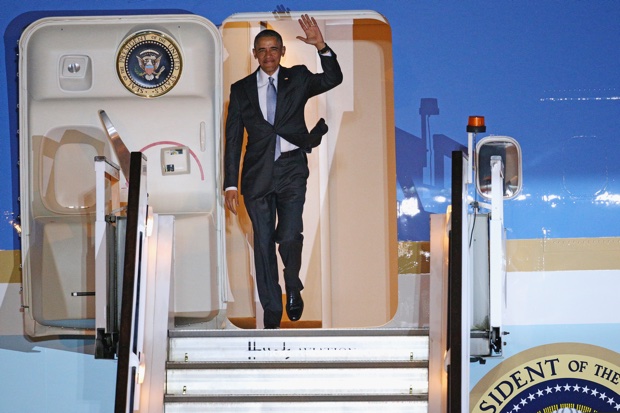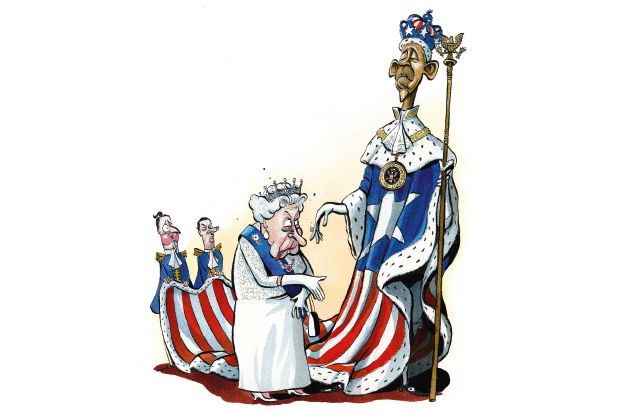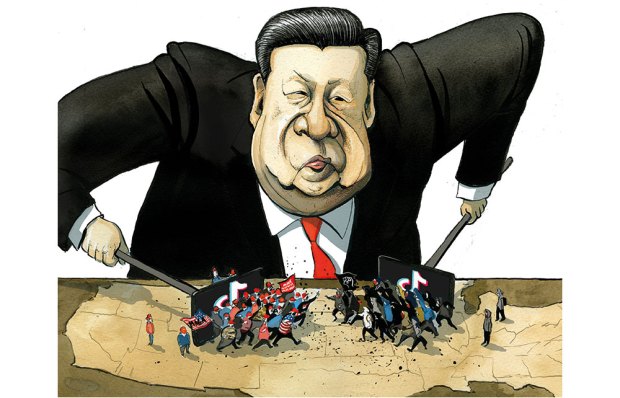Listen
You don’t like Barack Obama’s foreign policy? Fine, I don’t either. You are impatient to know who the next president will be? Me too. But if you think that the current American president’s trip to the UK this week is some kind of fanciful fling, or that his arguments against Brexit represent the last gasp of his final term in office, then you are deeply mistaken. In Washington, the opposition to a British withdrawal from the European Union is deep, broad and bipartisan, shared by liberal Democrats and conservative Republicans alike.
I should qualify that: the opposition to a British withdrawal from the European Union is deep, broad and bipartisan — and shared by the shrinking number of Democrats, Republicans and diplomats who are still interested in and committed to the transatlantic alliance. The isolationist wings of both parties don’t care one way or the other about Brexit. But then, the followers of Donald Trump and Bernie Sanders also don’t care about Nato, the special relationship, European security or anybody else’s security either.
Britain’s friends in Washington are opposed to Brexit precisely because isolationists of all political backgrounds are growing in numbers and influence all across the western world, and they don’t want Britain to join them, especially not right now. The institutions of the West are under attack in a way that they have not been for a quarter century, and Nato is not going to be able to counter all of them. A revanchist Russia is not content to flirt with military challenges to the western alliance, using its jets to buzz American ships or swoop close to British airspace; its leaders also seek to weaken western democracies from within by exporting corruption, buying politicians, funding radical parties and manipulating social media in the UK as well as the rest of Europe.
At the same time, a virulent strain of Islamist extremism has not only made governance impossible across large swaths of the Middle East and North Africa, it has also infected young people in Europe too. Brussels and Paris have seen only the most recent manifestations of the madness which led to the murder of Lee Rigby three years ago and the 7/7 attacks in London in 2005. Added to these challenges is a sudden abundance of homegrown populists who want to close borders and resurrect the protectionist walls that impoverished all of us in the first half of the 20th century.
These challenges are internal as well as external, requiring cooperation in economics, in policing, in areas of public policy that go well beyond the bounds of what Nato can do but are certainly within the remit of the European Union. When I was recently in Washington, an American diplomat reminded me that the sanctions which helped stop a full-blown Russian invasion of Ukraine (and maybe more) were only possible because the European Union was able to bring together all of Europe’s leaders in a negotiation that included the United States. Britain helped convince other, more ambivalent Europeans to join the sanctions, which is part of why they succeeded. If it had left the EU, Britain would not have had nearly as much influence, or perhaps any influence at all.
I do realise that ‘British influence’ matters less to most Britons than to many in Washington, and I expect that most inhabitants of these islands would rather have purely economic relations with the rest of the world and be done with it. But that’s not how the world works: if you don’t try to shape it, then others will do so for you. Even if your goals in Europe are narrow — if all you want is that the European continent remain relatively competitive and open to trade, including British trade — then you have to push other Europeans in that direction from within European institutions, as you have been doing so successfully for the past several decades.
Really, that’s all Americans want from Britain too: stay inside, promote our joint Anglo-American values, don’t let the continent collapse into protectionism or authoritarianism, and don’t drift off into an isolationism that will end badly for us all. President Obama will speak on behalf of many Americans when he calls on Britain to stay engaged in European politics, or at least those Americans who still care. As for those who don’t care — I don’t think there’s much that Britain can expect from them anyway.
Got something to add? Join the discussion and comment below.
Get 10 issues for just $10
Subscribe to The Spectator Australia today for the next 10 magazine issues, plus full online access, for just $10.
Anne Applebaum is a columnist for the Washington Post and a former deputy editor of The Spectator.
You might disagree with half of it, but you’ll enjoy reading all of it. Try your first month for free, then just $2 a week for the remainder of your first year.














Comments
Don't miss out
Join the conversation with other Spectator Australia readers. Subscribe to leave a comment.
SUBSCRIBEAlready a subscriber? Log in